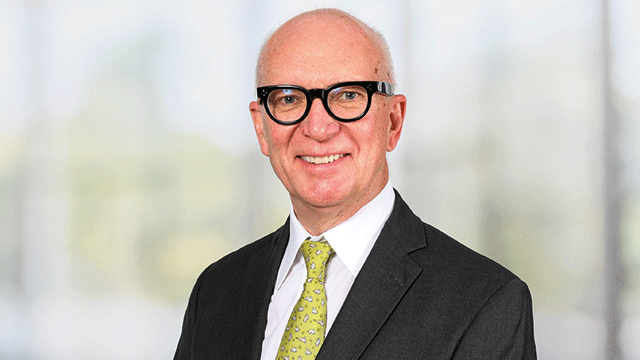Berkeley profits and revenue rise, but new investment reined in
Berkeley has said it is on track to hit its £1bn two-year profit target after a solid year’s performance.
Annual results published this morning show the group’s pre-tax profit rose by 9.5% over the year to £604m, while revenues rose by 8.6% to £2.55bn.
Returns on equity were also up from 17.5% to 18.7%.
Berkeley has said it is on track to hit its £1bn two-year profit target after a solid year’s performance.
Annual results published this morning show the group’s pre-tax profit rose by 9.5% over the year to £604m, while revenues rose by 8.6% to £2.55bn.
Returns on equity were also up from 17.5% to 18.7%.
Chief executive Rob Perrins (pictured) said: “Berkeley has delivered pre-tax profits in line with the guidance provided at the start of the financial year, maintained our shareholder returns programme and increased the net cash position.
“This is a very strong performance by our sales and construction teams, given market conditions and changing building regulations, and reflects the resilience of Berkeley’s business model with its focus on the country’s most undersupplied markets.”
Forward sales were only slightly down, at £2.14bn from last year’s £2.17bn, with the value of reservations for the financial year around 15% lower than the comparative financial year.
Berkeley repeated its intention to deliver pre-tax profits of at least £1.05bn across its next two financial years combined.
However, it added this was likely to be slightly weighted to the FY24, due to market conditions.
Perrins added that “the market is likely to lack urgency until there is more certainty over the trajectory of interest rates”.
The group sold some 4,043 new homes over the year across London and the South East, up from 3,760 last year. The average selling price was up marginally from £603,000 to £608,000.
Despite a further wave of share buybacks and dividends returning £254m to shareholders, in addition to the £515m returned last year, cash held by the group has increased by £141m to £410m.
This is in addition to the £1.2bn of borrowing capacity Berkeley has yet to dip into.
Perrins said the group, whose St Joseph arm has just won the £2.2bn bid to transform Birmingham’s Ladywood Estate, would “continue investing in our existing regeneration sites”.
However, he did warn that investment would be reined in. “Will remain cautious in committing to new investment until the conditions for growth are in place,” he said.
On the surface, it has been a great week for Berkeley. Profits and revenues up and another trophy regeneration project in the bag.
But rising rates, housing markets troubles and a squeeze on investments mean that even Big B is facing problems.
But while forward sales were only slightly down over the year, at £2.14bn from last year’s £2.17bn, the value of reservations are around 15% lower than they were for the previous year.
Indeed, Berkeley has said that it expects volumes to be 20% lower.Charlie Huggins, portfolio manager at Wealth Club, said the near-term outlook for Berkeley was “highly uncertain”.
“Near-term prospects for Berkeley and its peers are murky at best. The recent increase in mortgage rates is far from helpful and with many home buyers still on cheap fixed rate deals, most of the pain has probably yet to be felt.”
It will be felt soon, however. And Perrins knows that. Perrins said the group would “continue investing in our existing regeneration sites.”
However, he did warn that investment would be reined in. “Will remain cautious in committing to new investment until the conditions for growth are in place,” he said.
Andy Murphy, director at Edison Group, noted that the stand out feature of the results was not the positive figures, but Perrins’ “cautious tone”.
Huggins was less circumspect. “Berkeley is battening down the hatches. It has taken its foot off the investment accelerator and will prioritise cash and margins,” he said.
He argues that this will be necessary to maintain those two key pledges – to return a minimum of £283m to shareholders each year, and to hit £1.05bn of profits over two years.
Perrins agrees that the near-term picture is uncertain, saying that “the market is likely to lack urgency until there is more certainty over the trajectory of interest rates.”
As a result Berkeley expects the lion’s share of its profits to come in FY24, “due to market conditions”.
Indeed, the profit picture is rather more nuanced than the healthy headlines suggest. While pre-tax profits are up, profits after tax and adjustments are down, from £482.4m last year to £465.7m.
Murphy agrees with the diagnosis: “The company is having to swim against the tide of new regulations, an onerous planning system, and continued uncertainty over interest rates – which inhibits buying.”
And indeed, this “gloomy market outlook” is reflected in the results. While the company’s net cash jumped from £269m to £410m, this was not invested into new land holdings. Instead, they declined from £8.3bn to £7.6bn.
“This suggests that the Berkeley Group lacks confidence in the market, and prefers to keep cash-on-hand to weather future difficulties,” Murphy said.
“This is a company that feels it is bumping up against the limits of what it can currently achieve in this market environment.”For Perrins, though, the biggest threat is not from the market, but from the system.
The developer’s Birmingham arm, St Joseph, has just this week won the £2.2bn bid to become the development partner on Birmingham City Council’s regeneration of the 148-acre Ladywood Estate. The 20-year project will see St Joseph masterplan and develop 7,000 homes, alongside two new parks, commercial space and other amenities.
But Perrins warned that Berkeley’s ability to act as “the only large-scale UK developer aligned with Government’s brownfield first agenda”, was being held back by “the uncertainty from a continually evolving and increasingly burdensome regulatory environment”.
“While well-intended, this is constraining investment into brownfield regeneration and homebuilding,” he said. “If housing delivery is to be maintained the planning system needs to respond to these challenges and certainty is needed in the regulatory environment as a matter of immediate priority.”
Until the planning system was changed to reflect the importance of urban regeneration, Berkeley would effectively be hobbled.
As Perrins says: “A deeper understanding and recognition of the benefits of, and challenges to, this highly sustainable form of development is required within the planning system to ensure the tremendous opportunity it presents for society, communities and the economy is not missed for future generations.”
To send feedback, e-mail piers.wehner@eg.co.uk or tweet @PiersWehner or @EGPropertyNews











